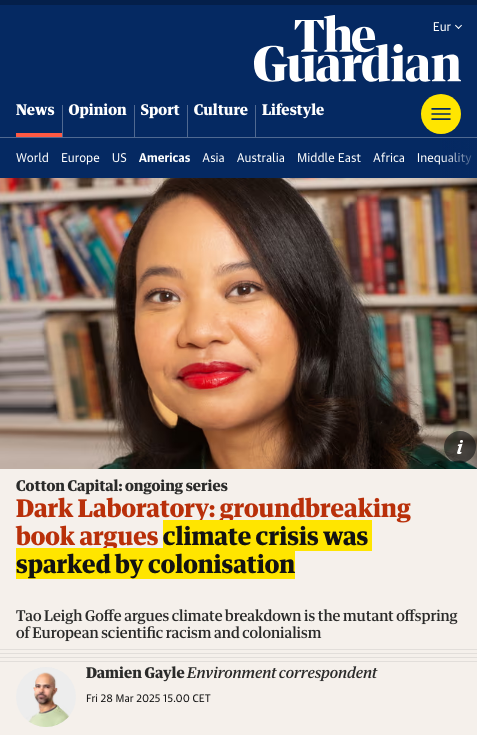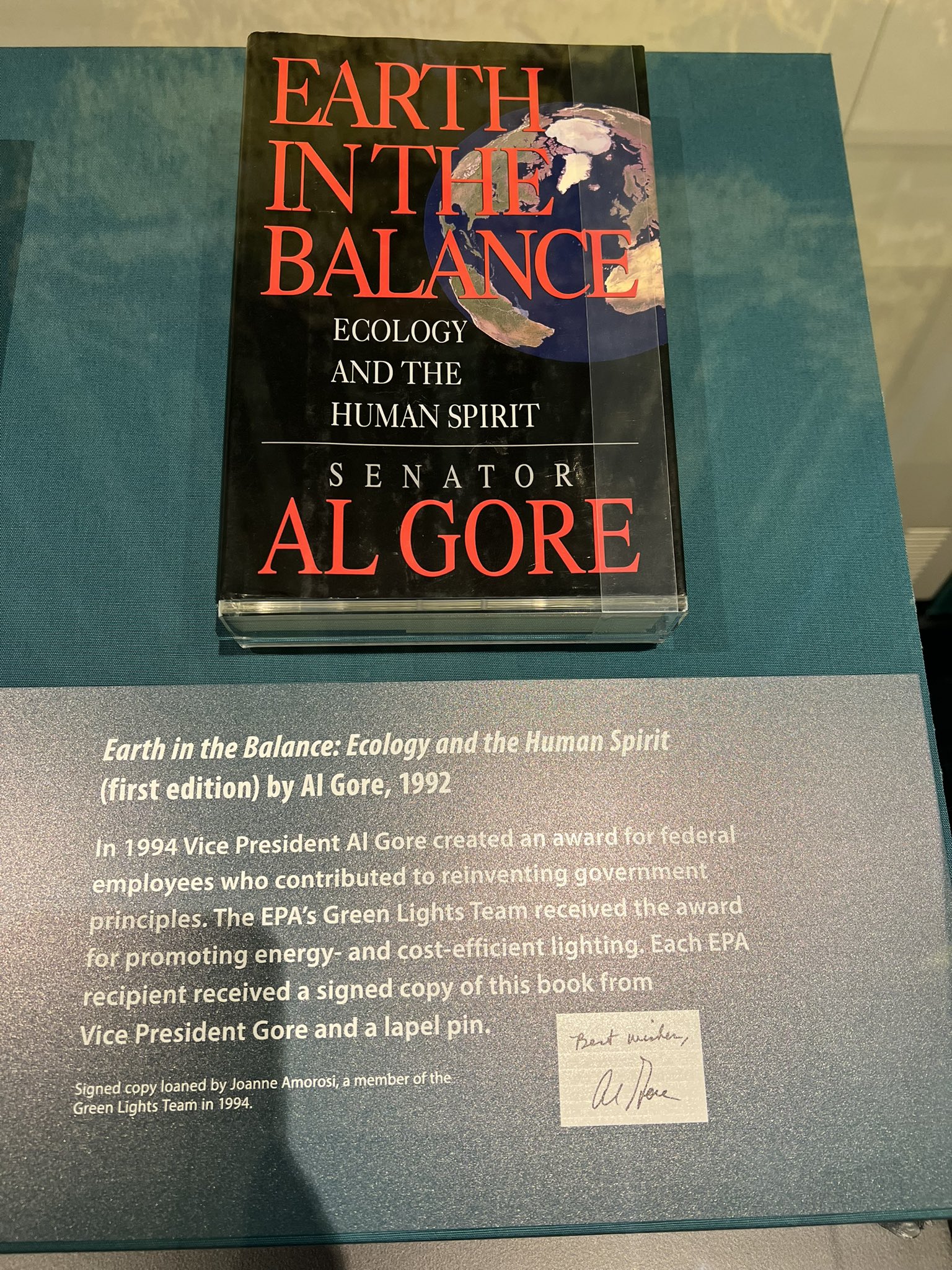We all think we know what is causing the breakdown of the planet’s climate: burning fossil fuels that release carbon dioxide, change the chemistry of the air and trap more heat from the sun, leading to rising temperatures.
But Tao Leigh Goffe, an associate professor of Africana, Puerto Rican and Latino Studies at the City University of New York, wants us to visualise a far more specific cause: the shunting of a ship’s prow on to the sandbank of a paradise island in 1492.
In Dark Laboratory, her groundbreaking new book, Goffe argues that it was the colonisation of the Americas by Christopher Columbus that set off the chain of events that has led us to where we stand today, on the precipice of global catastrophe.
Climate breakdown, she says, is the mutant offspring of European scientific racism and colonialism, conceived in the suffering millions of Africans, Asians and Indigenous Americans endured at the altar of capital accumulation.
The climate crisis is, put simply, also a racial crisis, and it is only once we come to terms with this, Goffe says, and what it means for the ways we relate to the world and each other today, that we can hope to find a solution.
“The broad thesis is a kind of unanswered question for me, which is how can we find a way not to betray the future?” Goffe said. “I feel the book is really written with a sense that redemption is possible, but that would require collective action.”
Central to Goffe’s critique is the notion that European colonialism turned the islands of the Caribbean into a “dark laboratory of colonial desires and experiments … the epicentre of the modern globalised world”.
It was there that enslaving farmers first formulated the structures of modern capitalism, alongside a scientific method rooted in eugenics and racism that privileged the status of white men while denigrating Black and Indigenous forms of science.
Such experiments included the creation of monocrop agriculture, the clearing of terrestrial and marine ecosystems making territories vulnerable to extreme weather, the categorisation of wildlife along lines of superficial characteristics and the now equally discredited categorisation of different races along similar lines.
“In opposition to the land, the colonial approach has been one of razing and dynamite, eroding Indigenous relationships to the soil,” writes Goffe. We must, she argues, “connect the dots between the brutal system of chattel slavery and the degradation of the natural environment … The worlds Europeans built depended on making the lives of some disposable.”
The result, according to Goffe’s analysis, was a system of knowledge production that projects a logic of ownership and exploitation on to the world that understands nature – and fellow humans – as no more than a means to profit.
For Goffe, Dark Laboratory is more than an environmental history. Born to Jamaican parents in London, with African and Chinese heritage, then raised and educated in the US, it is for her an exploration of her and her family’s history and how disparate ethnicities were transported across the world to the crucible of colonialism.
“Reading [about] labour history in the Caribbean and how the Chinese were introduced, let’s say, to the region, it really opened up these questions of modern capitalism and I began to ask questions about Black freedom and emancipation and how the British brought the Chinese to the scene of the plantation in order to try to save the sugarcane economy.”
In a narrative spanning hundreds of years, thousands of miles and successive waves of colonial driven migration, Goffe charts the development of the modern western ideology that has come to dominate the world. “I really wanted to think about the Caribbean as a dark laboratory, as this place that’s off the map, that’s kind of shrouded in darkness and secrecy, but a place where all of these experiments happened,” Goffe said.
Such experiments included the white colonialists’ introduction of the Calcutta mongoose, deftly paralleled by Goffe with the introduction of Asian indentured labourers to the island of Jamaica. Through thorough archival research, she illustrates how these plantation owners – “each … fancying himself a scientist, a gentleman farmer and a god over his estate” – applied the same instrumental pseudoscience to the importation of new species of wildlife as they did to the importation of different races of people.
As Audre Lorde said, the master’s tools will never dismantle the master’s house, and so in her effort to intellectually dismantle the superstructure of western science Goffe turns to a wider set of implements. Throughout the book she flits from economic, scientific and natural history to literary and cultural analysis, weaving together the Eden myth with the birth of geology with lyrics from the reggae revival artist Chronixx, and moving from the stark Detroit techno of Drexciya to the life-cycle of coral to the eugenicist theories of Francis Galton.
“It just brings a multisensorial way of seeing the problem, so it’s more multidimensional than just a problem that is on paper or that we’re going to solve with policy or the law,” Goffe says. “I’ve noticed that there’s a lot of people who are asking these questions that are musicians. King Britt [the Philadelphia musician] is another person who’s gotten in touch, and I’m kind of imagining a global sound clash with different musicians who are thinking through our urgent problems, with a kind of soundtrack so that we can find ways of storytelling when it comes to the climate crisis.”
…



